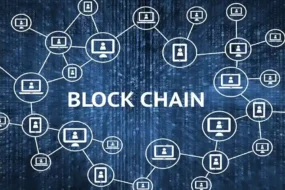
In the dynamic realm of e-commerce, ensuring the security of online transactions is paramount. A robust Domain Validation SSL (DVSSL) system emerges as a crucial ally for online retailers striving to fortify their digital storefronts. In this comprehensive exploration, we delve into the nuances of DVSSL, shedding light on its significance, functionalities, and the pivotal role it plays in securing online transactions.
Unveiling DVSSL: A Shield for Digital Storefronts
In the ever-evolving landscape of cybersecurity, a Domain Validation Certificate stands as a stalwart guardian. A DVSSL is a testament to a website’s authenticity, assuring visitors that their sensitive information remains shielded from prying eyes. This validation process involves confirming the domain ownership, adding an extra layer of trust to the e-commerce ecosystem.
Why DVSSL Matters in Online Transactions
Encryption Fortification
The crux of DVSSL lies in its encryption capabilities. Utilizing advanced cryptographic protocols, it encrypts data exchanged between the user and the website, rendering it indecipherable to potential attackers. This encryption not only safeguards sensitive information but also fosters customer confidence in making online purchases.
Trust Indicators for Consumers
In the competitive e-commerce landscape, trust is currency. DVSSL contributes to building this trust by displaying visual cues like the padlock symbol and “HTTPS” in the address bar. These indicators signal a secure connection, alleviating concerns about data security and enhancing the overall shopping experience.
Navigating the DVSSL Landscape
Types of DVSSL Certificates
DVSSL certificates come in various flavors, each tailored to different security needs. Domain Validated SSL certificates, as the name suggests, focus on domain authentication. They are cost-effective and ideal for small to medium-sized online retailers looking for fundamental encryption.
The Validation Process
Understanding the validation process is pivotal. DVSSL typically involves email verification or adding a specific DNS record. This swift validation process ensures that websites can quickly implement security measures without causing significant disruptions to their operations.
Domain Validation SSL Best Practices
Regular Certificate Renewal
Cyber threats evolve, and so should security measures. Regularly renewing DVSSL certificates ensures that the website is consistently fortified against emerging threats, providing a continuous shield for sensitive information.
Multi-Domain SSL Considerations
For e-commerce platforms with multiple domains, opting for Multi-Domain DVSSL certificates proves beneficial. This consolidates security efforts and streamlines the management of SSL certificates across various domains.
Addressing Common Concerns About DVSSL
Vulnerabilities and Misconceptions
Addressing misconceptions surrounding DVSSL is crucial. While some may argue that DVSSL is susceptible to certain vulnerabilities, proper implementation and regular updates can mitigate these concerns, making it a reliable security measure.
Impact on Website Speed
Another concern often raised is the potential impact on website speed. However, advancements in encryption algorithms and technologies ensure that the performance trade-off is minimal, making DVSSL an efficient choice without compromising speed.
Final Words
In the intricate dance of e-commerce security, DVSSL emerges as a reliable partner. Its encryption prowess, coupled with trust-inducing visual cues, solidifies its role in fortifying online transactions. As online retailers traverse the digital landscape, embracing DVSSL becomes not just a security measure but a strategic imperative.
Commonly Asked Questions
Q1: Is DVSSL suitable for all e-commerce businesses?
A: Yes, DVSSL is versatile and fits the security needs of small to large e-commerce platforms.
Q2: How often should DVSSL certificates be renewed?
A: Regular renewal, typically annually, ensures continuous protection against evolving cyber threats.
Q3: Does DVSSL impact website speed?
A: Advances in encryption technologies minimize any impact on website performance, ensuring a seamless user experience.
Q4: Can DVSSL be used for multiple domains?
A: Absolutely. Multi-Domain DVSSL certificates simplify security management for platforms with multiple domains.
Q5: Are there vulnerabilities associated with DVSSL?
A: While no system is entirely immune, proper implementation and updates mitigate potential vulnerabilities, making DVSSL a robust choice.
Advertisement








